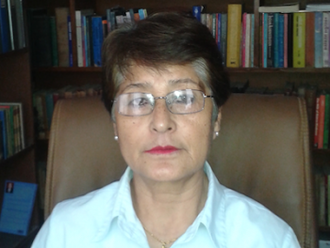Eyewitness report from Nepal - six months after the earthquake

Jyoti Lama Khanal
Jyoti Lama Khanal is a Catholic Nepalese social worker with Caritas Nepal. She writes: Yesterday (25 October) we Nepalese remembered the devastating impact of the earthquake that struck our country on 25 April. As one of only 10,000 or so Catholics in a population of more than 31 million, I went to Mass to pray for nearly 9,000 people who lost their lives, and nearly three million who lost their homes, their livelihoods, or both.
I am a volunteer social worker with Caritas Nepal, part of the international network of Catholic aid agencies. My particular concern is women's rights, particularly among the lowest caste, the Dalits, and ethnic groups - together they are called the minorities. Even though there are only a few hundred thousand Christians in the country, our contribution to relief work after the earthquake, as well as longer-term recovery, has been able to reach far and wide.
Immediately after the disaster we worked in all 14 of the districts identified by the government as the worst-affected, helping more than 70,000 families.
Winter is fast approaching in the Himalayas, and we are concentrating on ensuring people have enough shelter to get through. In the longer term, helped by our international partners, including the Catholic Agency for Overseas Development (CAFOD) in England and Wales, and Trócaire in Ireland, we are looking at reconstructing homes and building schools and clinics, and supporting people to earn a living once again.
When the earthquake happened, it was worst for the poorest people in the villages. They were promised cash aid by the government, but not everybody received this assistance. When relief materials were distributed, in some cases they were monopolised by the more dominant groups. It was hardest for the women: often they had lost their husbands as well as their homes. The responsibility of taking care of the children and the household has fallen as a heavy burden financially, physically and mentally, on their shoulders.
Women who had to live in temporary shelters were often subject to all kinds of harassment, including sexual assault. Living under tarpaulins, it was hard for women and girls even to change their clothes, especially during their monthly periods. There have been reports of young women and girls being abducted for forced labour and the sex trade in the big towns in Nepal and across the border in India. They needed police protection, and those NGOs working on women's issues were very active in co-ordinating with the police.
I am from the Tamang ethnic community, who were the original inhabitants of the Kathmandu Valley. Ethnic groups such as the Tamang are known collectively as Janjatis (tribal people) and Adivasi (indigenous people). They are disadvantaged in some ways, but there is far more discrimination against the Dalits, formerly known as Untouchables. Although Dalits have more equality in the cities, in rural villages they are always among the poorest. Dalit women are the most disadvantaged of all.
Within our church there is no discrimination. And Caritas Nepal, from its inception back in 1989, has been in the forefront in promoting awareness of discrimination against women and children, especially those who are Dalits or from ethnic minorities. Our women's desk works very hard through seminars, talks, radio programmes, processions, leaflets and posters.
The earthquake spurred our politicians on to complete work on the new constitution. Although there has been discontent with some sections, resulting in a blockade which has caused fuel shortages across Nepal, it contains important measures that outlaw discrimination against Dalits, for example. And the constitution does enshrine rights affecting all women, on such matters as ownership of property.
One of the most important sections, I feel, concerns representation of women. One-third of places in parliament and all levels of government have been set aside for them. For the section of parliament elected under proportional representation, parties submit lists of candidates which have those from the least privileged groups at the top. This should ensure minority women's rights, but we have to see how this, like all the other rights and privileges in the constitution, are implemented in practice.
For more pictures see: www.facebook.com/Independent-Catholic-News-ICN-195368037167900/
















